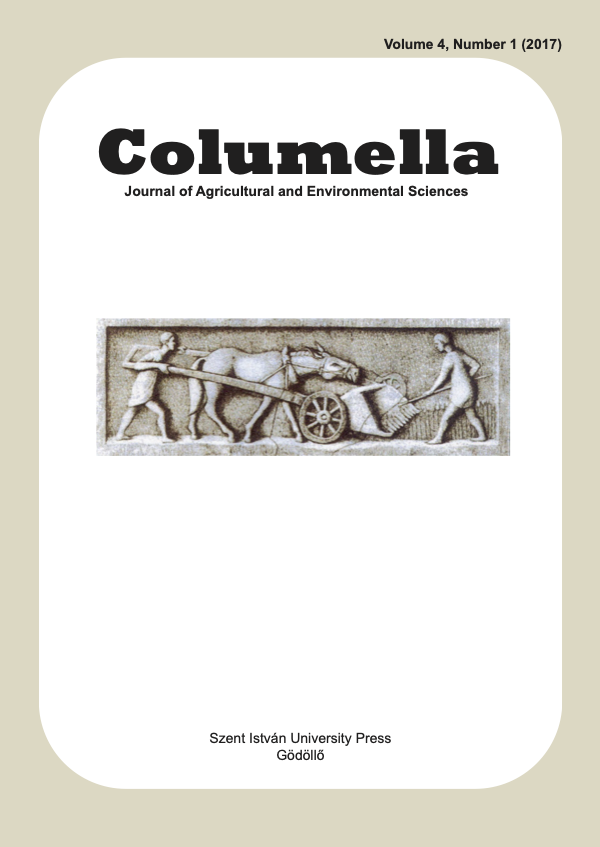Role of agrotechnical elements in sustainable wheat and maize production
DOI:
https://doi.org/10.18380/SZIE.COLUM.2017.4.1.59Keywords:
crop rotation, fertilization, irrigation, WUE, NO3-accumulationAbstract
In conventional crop production the yield increasing was based on the huge industrial chemical inputs and new genotypes of cereals. This extreme external input use could modified the resilience, adaptive capacity and sustainability of different crop models. The effects of different crop management factors were studied in long- term experiments on chernozem soil in Eastern Hungary. The fertilizer responses of wheat varieties depended on the crop year (6.5-8.2 t ha-1 in 2011-2014 years) and the genotype (in 2012 the difference was 2.7 t ha-1 among genotypes). The optimum N(+PK) dose varied between 30-150 kg ha-1 in different crop years. The N-doses over optimum caused NO3-N accumulation in chernozem soil (from 32 mg kg-1 to 170 mg kg-1 ). In sustainable maize production the fertilization resulted high yield surpluses in average (2.0-4.1 t ha-1) and rainy (2.1-5.4 t ha-1) crop year in our long-term experiment (in 1986-2014 years). The yield increasing of irrigation were agronomically effective only in dry crop years (3.3-4.9 t ha-1) and they were very limited in average (1.2-1.3 t ha-1) and rainy (0-0.2 t ha-1) crop year (in 1986-2014 years) The optimum fertilization could improve WUE in maize production.
Downloads
Published
Issue
Section
License
Copyright (c) 2017 Péter Pepó

This work is licensed under a Creative Commons Attribution-NonCommercial-NoDerivatives 4.0 International License.






